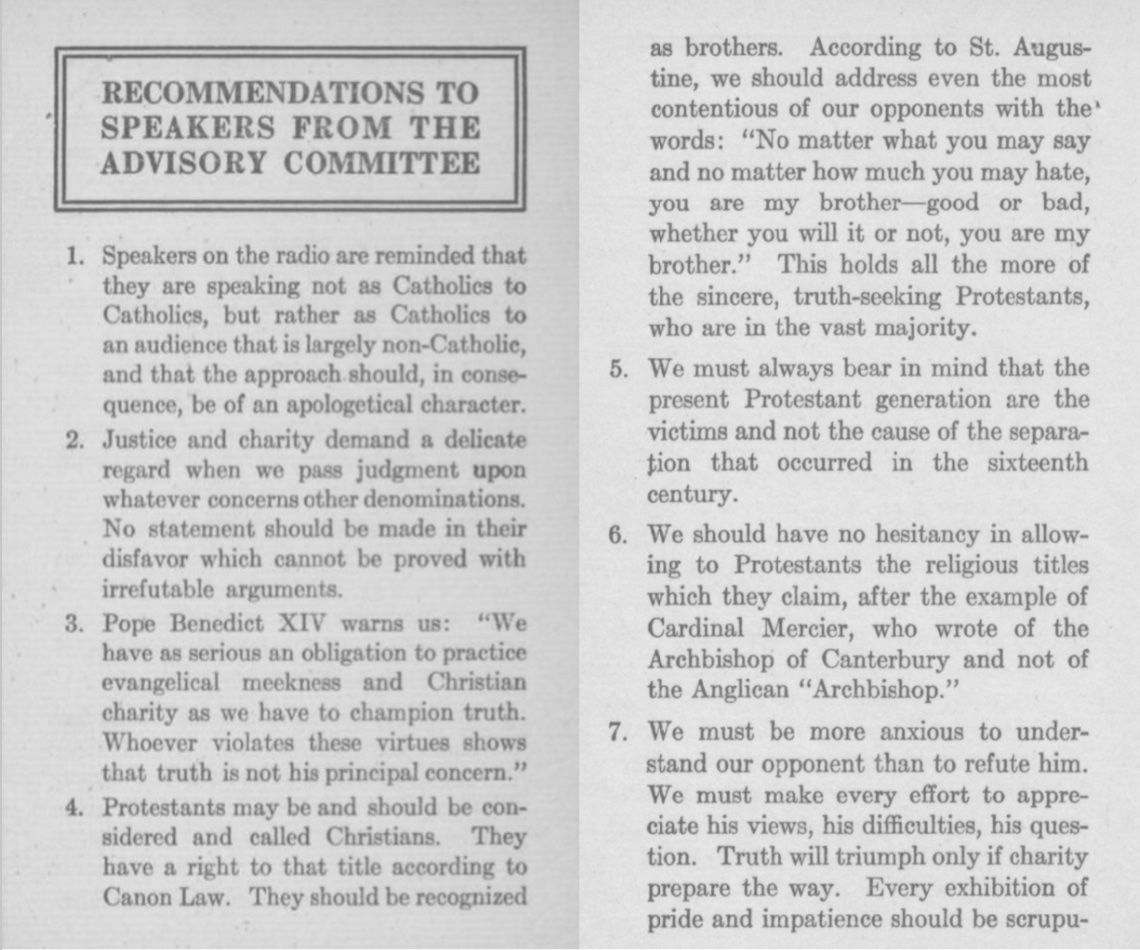Presenting on "The Catholic Hour" at the 2025 Meeting of the Southeastern American Studies Association
18 Mar 2025This spring, I headed to New Orleans to present a paper, “Forgotten Frequencies: Network Religious Radio and the Rise of Tri-Faith America.” The paper focused especially on NBC’s The Catholic Hour in the 1930s. The popular program emerged during an era rife with nativism and Protestant nationalism, and it powerfully demonstrated that Catholics could be both fully American and fully Catholic. Yet, to package Catholicism for a mass audience, Catholic organizers had to make strategic compromises that maintained Catholicism’s distinctiveness but didn’t offend non-Catholic listeners. This balancing act, I argued, helped pave the way for for Americans during and after World War II to see Protestants, Catholics, and Jews as co-equal pillars of American religious life.
Here’s a short Randolph News article about my paper: Kenaston Presents at Southeastern American Studies Association Conference.
